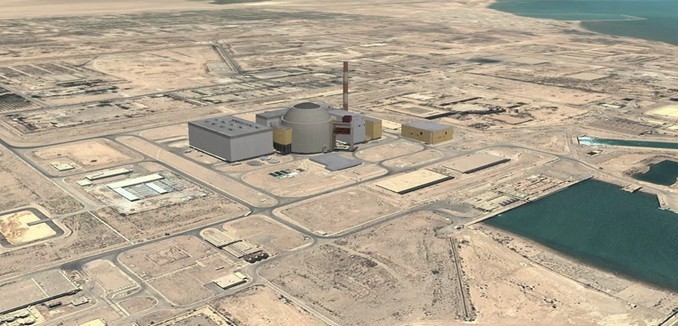The deal currently being negotiated between Iran and the P5+1 powers is designed to leave Iran permanently one year away from obtaining a nuclear bomb. But a group of nuclear and geopolitical experts argued in an op-ed published Sunday in The Washington Post that one year is not enough time to respond to Iranian violations of the deal.
The op-ed was written by Gen. Michael Hayden, former Director of the Central Intelligence Agency; Olli Heinonen, former former Deputy Director General of the International Atomic Energy Agency; and Ray Takeyh, a fellow at the Council on Foreign Relations.
While Iranian violations of an emerging nuclear deal could possibly be identified quickly, the required coordination among different bodies and governments required to take decisive action in case of such violations would not allow for a speedy response time. Hayden, Heinonen, and Takeyh criticized a argument frequently made by the Obama administration that forcing Iran to a one-year breakout time would give the world sufficient time to response and reverse Iran’s violations.
Once the United States had an indication that Iran was violating an agreement, a bureaucratic process would be necessary to validate the information. It could be months before the director of national intelligence would be confident enough to present a case for action to the president. Several U.S. intelligence agencies, the Energy Department and national nuclear laboratories would need a chance to sniff the data to be convinced that a technical breach had occurred. Only after this methodical review was finished could the director go to the White House with conclusions and recommendations.
Given that the International Atomic Energy Agency (IAEA) would be the on-site inspection organization responsible for the verification of an agreement, the United States’ scoop would have to be forwarded to that body. Of course, both the speed and the extent of U.S. sharing would be affected by the need to protect sensitive human or technical sources of information. Only then would IAEA representatives begin talking with their Iranian counterparts about gaining access to disputed sites or activities. History suggests the Iranians would engage in protracted negotiations and much arcane questioning of the evidence. Iran could eventually offer some access while holding back key data and personnel. It would be only after tortured discussions that the IAEA could proclaim itself dissatisfied with Iran’s reaction. This process also could take months. …
Once the IAEA arrived at a verdict of noncompliance, it would forward its grievances to the U.N. Security Council for adjudication. The United States would have to convince the other member states invested in the agreement — including veto-wielding Russia and China — that the accord was being violated and that forceful action was needed. Time would be spent quarrelling over divergent views, with several outcomes possible, including a Security Council presidential statement or a resolution whose content would need to be agreed upon. And only then could new economic sanctions be imposed on Iran. So, add at least a few more months.
If after all of these processes were exhausted, and Iran was found in violation of the emerging deal, and sanctions were imposed in response, there still wouldn’t be enough time for “for the economic pressure to work.”
Hayden, Heinonen, and Takeyh also observed that Iran isn’t likely to provoke a crisis by blatantly violating a future accord, but will more likely “[lull] the world with a cascade of small infractions … an ingenious way to advance its program without provoking a crisis.”
Last year, Iran was found to have violated the November 2013 Joint Plan of Action by feeding uranium into a an advanced centrifuge. Last week the administration characterized the violation as a “mistake.”
Because the consequences of the deal being negotiated between the West and Iran could impact the stability of the Middle East and the global non-proliferation regime, Hayden, Heinonen, and Takeyh call it the “most consequential arms-control agreement of the post-Cold War period,” and call for “a national debate” on the terms of the deal. They identified Congress as the proper venue for this debate.
Last week, four-fifths of the House of Representatives, both Democrats and Republicans, signed a letter written by Rep. Eliot Engel (D – N.Y.) calling on the administration to bring any deal before Congress to ensure that the deal being negotiated with Iran will “foreclose any pathway to a bomb.”
[Photo: Nuclear Threat Initiative / YouTube ]




